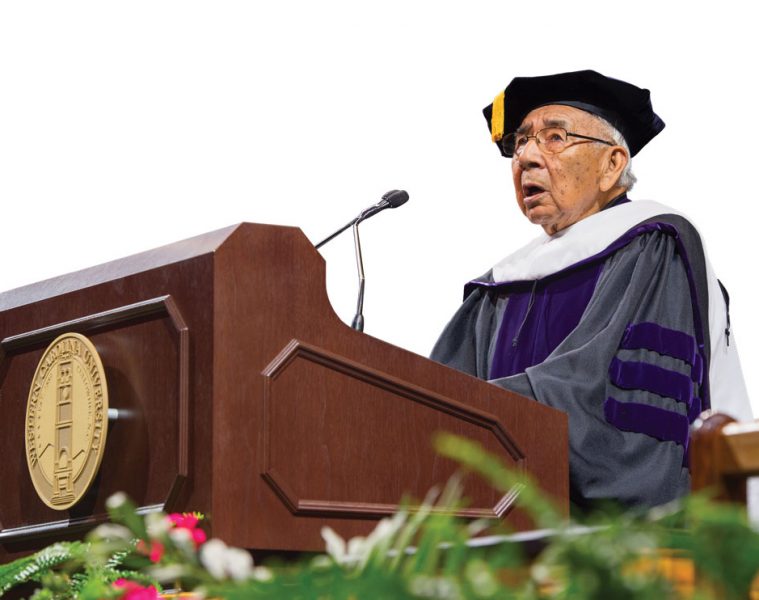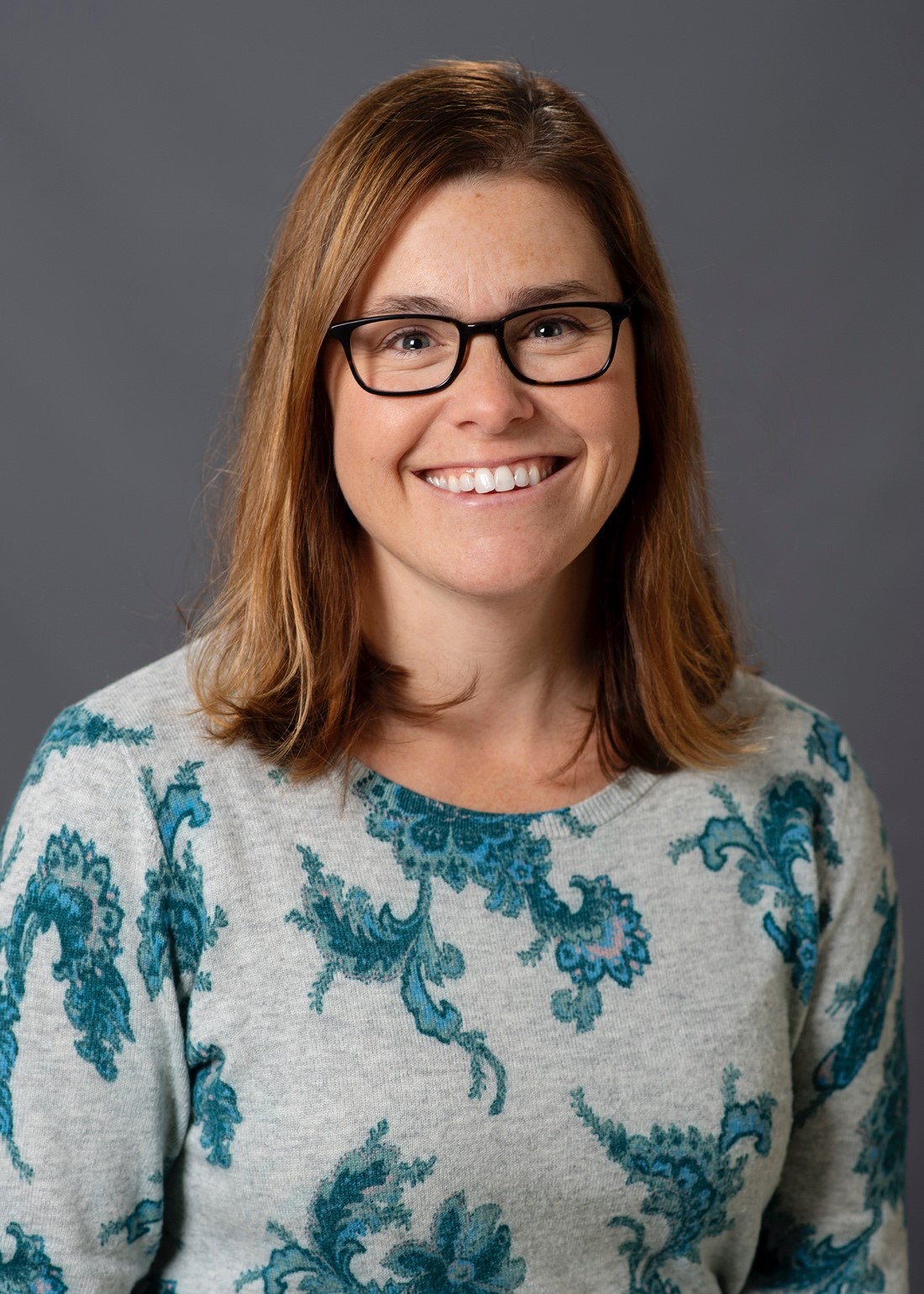Faculty Senate approves resolution opposing resumption of in-person instruction for fall 2020
Western Carolina University’s Faculty Senate narrowly approved a resolution against resuming in-person instruction for fall semester and calling on the General Assembly to guarantee funding to the University of North Carolina System and financial assistance to affected students if the COVID-19 pandemic forces UNC institutions to return to online-only course delivery.
Approval of the resolution came by a vote of 15 to 13, with one abstention, during a videoconference meeting Monday, Aug. 10, which is one week before the first day of classes for the 2020-2021 academic year.
Following the vote, WCU Chancellor Kelli R. Brown and Interim Provost Richard Starnes, who both spoke during the meeting, issued a statement on behalf of university administration.
“Western Carolina University values the voice of its faculty and the role of shared governance,” the statement read. “The vote today during a special called Faculty Senate meeting to discuss a resolution related to the residential opening of the fall semester reflects the complexity of the effects of the COVID-19 pandemic on higher education. Instruction this fall will begin on Aug. 17 and will be a blend of traditional in-person, online and hybrid course delivery.”
The resolution was sponsored by Yancey Gulley, associate professor of higher education student affairs, who drafted the original document and shared with faculty members for feedback and revision last week. “The core message of the resolution remains – it is a dangerous thing to open WCU and other institutions in the UNC System amid the pandemic, as there is currently no vaccine and positive cases in the state and country continue to rise,” Gulley said.
“This vote is a symbolic one and an important one. Despite my very personal desire to not open WCU for residential instruction, I do not have that authority. Nor does the Faculty Senate,” he said. “What we do have is an obligation to speak out to our institution, our system leadership and those in our overall community when we see injustice, changes in educational direction or pedagogical practices that are counter to our educational mission or impedes our commitments to it.”
The action was symbolic because decisions regarding the reopening of campuses for fall semester are being made by the UNC System’s new president, Peter Hans, and the UNC Board of Governors, board chair Randy Ramsey announced in July.
Several faculty members spoke about the pros and cons of adopting the resolution during a lively, nearly 80-minute discussion, with approximately 450 participants logged on for the videoconference meeting.
Will Lehman, associate professor of world languages, proposed a friendly amendment to the resolution requesting the Legislature to be ready to support the UNC System and its faculty, staff and students if changing health conditions cause universities to pivot away from face-to-face instruction, as was the case midway through the spring semester. Gulley accepted the proposed amendment, a revision that did not require a vote of the full senate.
David de Jong, assistant professor of psychology, suggested that Faculty Senate take a step back to allow additional time to refine the resolution and more clearly define its goals toward a more impactful statement. De Jong also expressed concern that the document “conveys a sense of privilege and entitlement” and that it may not represent the views of university staff members who do not have the same type of work flexibility that faculty have.
De Jong introduced a motion to move the resolution from the full Faculty Senate to its Faculty Affairs Council for additional work and refinement. The motion failed by a vote of 18 opposed, nine in favor, and one abstention.
Faculty Assembly representative Vicki Szabo, associate professor of history, shared some of her concerns about the resumption of classes for fall semester. “I’m sitting in the McKee Building right now and I have my mask around my neck, but as I walked in today, we don’t yet have the controls that a grocery store does. We don’t have proper ingress and egress. We don’t yet have cleaning supplies in the classroom. Each faculty member was supplied with 75 wipes. That’s not going to last long,” Szabo said.
“I want this discussion raised simply to highlight the practical aspects of what we’re about to do next week. I want to be in the classroom and I think just about everybody else here does, too. But, we have to do so safely. With months of planning behind us, it’s unnerving that we don’t yet have these basic safety measures in place that are visible on the floor in the building in which I sit right now,” she said.
English professor Laura Wright said that resolution represented an opportunity to speak up on behalf of housekeepers and other staff members on the front lines of the battle against COVID-19.
“Faculty are always perceived as having this kind of privileged position from which we’re operating, but I think in this case, I think it’s important to note that the privilege we have is a privilege to stand up for people who don’t necessarily have it,” Wright said. “I want to use my privilege to speak to the safety and well-being of everyone on this campus, not just faculty.”
Leigh Odom, associate professor of communication sciences and disorders, reminded her colleagues that moving to online-only instruction would negatively affect students in many health and human sciences programs.
“I can do the educational piece online quite effectively, but there is the other side of that with the clinical skills. If we were to go entirely online, there are just things I cannot do to make sure they are meeting those skills before we send them out into the world to provide care,” Odom said. “If we don’t have the clinical opportunities, which are interactive with the students and with patients and with the community, there are students who will not graduate because they cannot move forward in their programs.”
From the student perspective, Dawson Spencer, president of the Student Government Association, shared results of a student survey in which 156 respondents said they did not want to return to campus for instruction this fall and 159 respondents said they did want a residential learning experience.
Staff Senate Chair Ben Pendry, executive director of advancement services, said that while supportive of the Faculty Senate’s role in shared governance of the university, the group he represents did not support the resolution.
“Our staff are ready to get to work and they’re ready to be here,” Pendry said. “We believe that the precautions and the standards that WCU’s administration and our faculty and staff members have put into place prepare us for serving the people of Western North Carolina and serving the students that want to be here and want a residential, in-person opportunity.”
Faculty Senate Chair Kadence Otto, professor of sport management, presided over the meeting while past chair Enrique Gomez served as parliamentarian, keeping meeting participants in compliance with Robert’s Rules of Order.
The final resolution approved by Faculty Senate reads as follows:
A) WHEREAS, a pandemic (COVID-19) has changed the nature of how the world operates, particularly in terms of human interaction;
B) WHEREAS, cases of COVID-19 in the United States, North Carolina, and Jackson County continue to rise;
C) WHEREAS, the UNC System has mandated a residential opening, and WCU Administration has confirmed that WCU does not have the authority to move to fully online instruction;
D) WHEREAS, on August 5th, Governor Roy Cooper signed Executive Order No. 155 “Extension of Phase 2 Measures to Control Public Health Risks and Save Lives in the COVID-19 Pandemic” through September 11, 2020, wherein:
E) WHEREAS, there are many public health benefits, economic benefits, and societal benefits to reopening K-12 schools, colleges, and universities for in-person instruction, but these in-person gatherings of students, staff, teachers, and professors will increase the risk of COVID-19 spread, even after all health and safety measures are put in place. (Executive Order No. 155, p. 2 at para. 16)
F) WHEREAS, the population of Jackson County greatly increases with the influx of WCU students and employees who live in other counties and states, and it is unlikely that the healthcare systems of the county are equipped to handle an increase in cases anticipated with a return to residential instruction; and,
G) WHEREAS, university towns across the country where students have returned have realized a lack of adherence to CDC guidelines, and some of WCU’s current “Fall 2020 Operations and Procedures” fail to meet CDC guidelines.
THEREFORE, BE IT RESOLVED, the WCU Faculty Senate is gravely concerned about the health and well-being of the Catamount community and those in the region we serve (particularly those from vulnerable populations); thus, we oppose a residential opening for the Fall 2020 semester and stand in solidarity with those School Systems, Faculty Senates, and County Health Departments who have spoken out against face-to-face instruction during this pandemic. We furthermore call on the state legislature to guarantee funding to the UNC system, and financial assistance to affected students, if and when further outbreaks force schools to return to online-only instruction.


